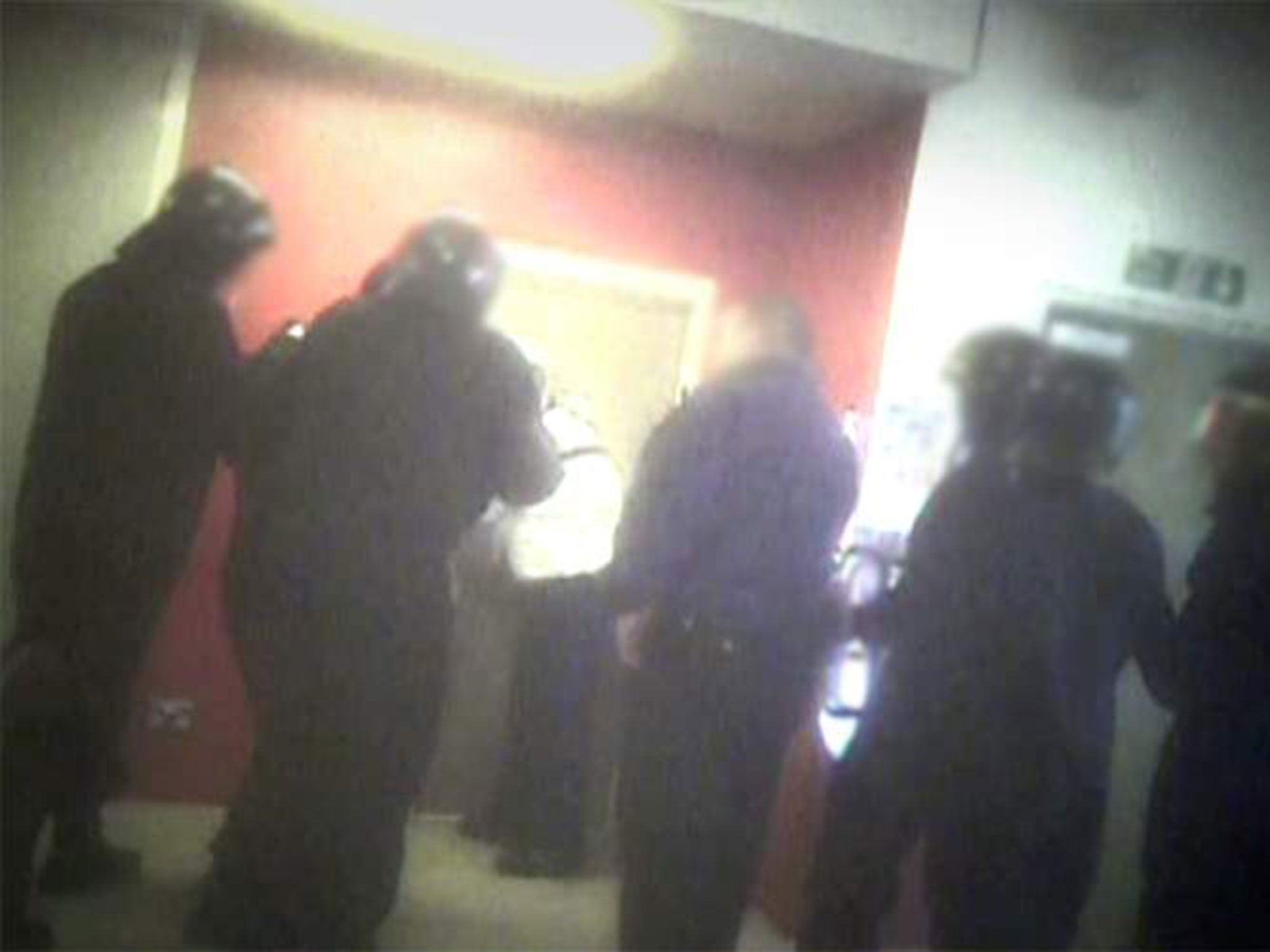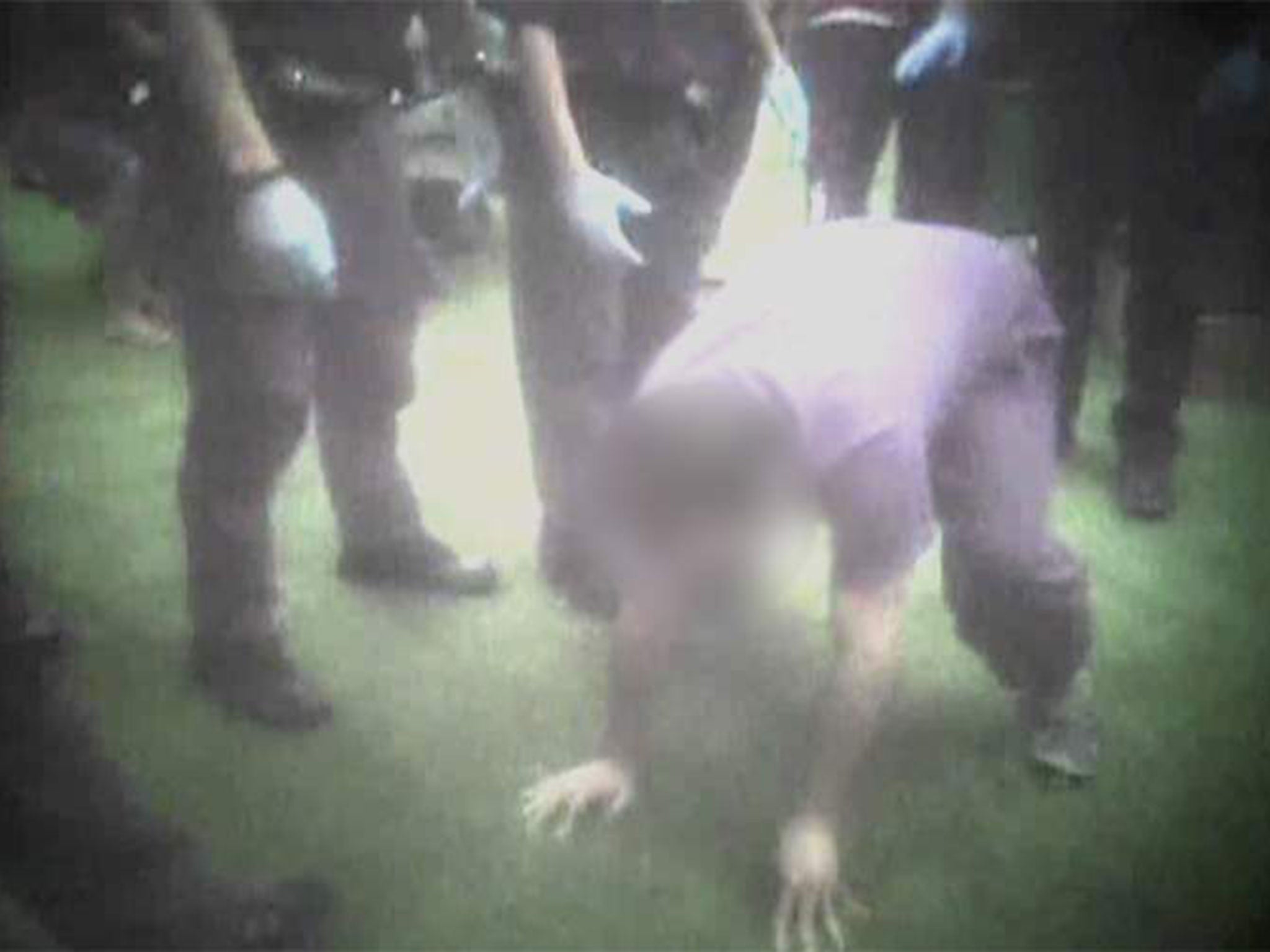‘F*** off back to your country’: Former Brook House detainee speaks out about staff brutality and neglect
‘One detainee cut himself in front of staff. They just sat there and laughed. He cut himself so badly that the blood was just pouring out,’ ex-detainee Michael tells The Independent

Your support helps us to tell the story
From reproductive rights to climate change to Big Tech, The Independent is on the ground when the story is developing. Whether it's investigating the financials of Elon Musk's pro-Trump PAC or producing our latest documentary, 'The A Word', which shines a light on the American women fighting for reproductive rights, we know how important it is to parse out the facts from the messaging.
At such a critical moment in US history, we need reporters on the ground. Your donation allows us to keep sending journalists to speak to both sides of the story.
The Independent is trusted by Americans across the entire political spectrum. And unlike many other quality news outlets, we choose not to lock Americans out of our reporting and analysis with paywalls. We believe quality journalism should be available to everyone, paid for by those who can afford it.
Your support makes all the difference.People being held at an immigration detention centre “are treated like animals” and told to “f*** off back to [their] own country”, a former detainee has said.
“I don’t like to use the word racism, but what else is it?” Michael, who did not want his full name published, told The Independent. “Can you imagine a British person – even a British prisoner – being treated like this? Nobody cares.”
Michael was held at the Brook House immigration detention centre between September and December 2014. But three years after his release, the memories of regular staff bullying, rampant unaddressed mental health suffering and being routinely treated like an “animal”, remain with him.
Following a recent Panorama documentary that saw G4S guards secretly filmed choking, mocking and abusing detainees, Michael, who is now a member of Freed Voices – a group of experts campaigning for detention reform – has decided to speak out about what he witnessed.
As a Samaritans-trained peer supporter during his time at the centre, he said he saw two or three people every “couple of days” who had attempted suicide – but that the widespread mental health problems usually went completely unacknowledged by staff.
“I saw people come into the centre with prescribed mental health medication, and have staff take it off them and chuck it in the bin,” he said. “I remember this guy had had his medication taken away from him and put in the bin at reception, and then he went to healthcare to try get medication and they said they couldn’t prescribe it.
“Then when this guy got agitated and angry, staff didn’t understand why. He had obviously been on this medication for a long period of time, and he relied on it. They just put him in segregation where he got locked. Nobody was listening to him or trying to resolve the situation. The staff would just record that he was being disruptive and stuff like that. You are in a no-win situation in there, whatever you do.”
Michael added that there was a “culture of disbelief” in the system when it came to mental health conditions. Staff were reluctant to accept that any detainee was mentally unwell because, according to official guidelines, this would mean they should not legally be in detention, he said.
“If, for example, someone said they were sick and went to healthcare, healthcare often wouldn’t want to look after these people or assess them properly, because if they do that they are admitting that these people shouldn’t be in detention,” he said.
“There’s a huge mental health issue going on in detention centres. The Government’s own guidelines say if someone is mentally ill they should not be in detention. So if they yes, this person has mental health problems, they’re breaking their own rules and laws.”
Michael said he had once witnessed officers “laughing” as a man cut himself with a razor.
“This guy had been working in the kitchen all afternoon and he told staff he needed to shower before he came down for dinner. They had agreed to save food for him,” he said. “But when he came down, no food has been saved for him. He complained that he was hungry but staff said they didn’t care. ‘If you f***ed off back to your country you wouldn’t be in here,’ they said.
“This guy told them, ‘If you don’t let me eat I’m going to cut myself.’ They still did nothing, and he cut himself in front of them, then and there. The staff just sat there and laughed. He cut himself so badly that the blood was just pouring out. It was a mess. It was disturbing.”
He added that the detainees suffering was particularly noticeable at night, when he heard people “screaming, shouting and banging their heads against the wall”.
He said: “The amount of times I had to put a wet towel over my ears to sleep because of the noise. There was a bloke in the cell next door to me who used to bang his head on the wall at night time, and shout that they were trying to kill him.
“I thought he has someone in his cell, so I called staff to check on him. They said, ‘Oh, he does that all the time, don’t worry about it.’ But when I saw this guy in the morning, I could see he had blood all over him. He had hurt himself.

“The longer you’re in there you start to think, God, how long is it going to be until I reach that stage? You start to understand what that person is going through.”
Asked for help, staff at the centre would routinely tell detainees to “f*** off to their country”, he said.
“They just weren’t bothered to do anything. If, say, I had spoken to my solicitor and they said they had sent me a fax and I need to sign it and send it back to them, I would go into the office and they’d tell me no,” he added.
“The answer you get is ‘why don’t you f*** of to your country and stop harassing us’. That was just the norm. You hear things like that every day in Brook House.
“The attitude that most of the staff have is that these people are being sent to their countries, so they will never see them again.
“However badly they treat them, nobody cares, and it’s true – nobody cares. The Home Office doesn’t care, G4S doesn’t care.”
Michael said that unlike in a prison, there was no effective reporting system in detention for cases of staff misconduct, with staff often able to cover their own backs by choosing not to file complaints.
“I had at least eight detainees who came to me reporting abuse of staff. But when they made a complaint they were just transferred to another centre. It wasn’t reported and they were just moved to another centre,” he said.
“Who’s going to log it? The problem is, you make a complaint and you put it in a box, but it’s the same staff members who you complain about who are going to empty the box and take that paperwork to wherever it needs to be processed.”
When The Independent put Michael’s allegations to the Home Office, identifying who he was and when he was in Brook House, a spokesperson did not deny them.
They said: “We condemn any actions that put the safety or dignity of immigration removal centre detainees at risk. We are clear that all detainees should be treated with dignity and respect and we expect G4S to carry out a thorough investigation into the allegations made by BBC Panorama and that all appropriate action be taken.”
A G4S spokeswoman said: “There is no place for the type of conduct described in the allegations anywhere in G4S. Such behaviour is not representative of the many G4S colleagues who do a great job, often in difficult and challenging circumstances, across the country.
“The Home Office has a complaints procedure, which is independent of G4S, to allow detainees at Brook House to raise any issues or concerns. We take all complaints seriously and allegations brought to our attention will be investigated.”
Michael’s account of sordid conduct by G4S staff in the centre is synonymous with what was revealed in the undercover footage aired by BBC Panorama on Monday.
The documentary showed distressing scenes, including the response to a man who was trying to strangle himself and put a mobile phone battery in his mouth, prompting one officer to say: “Plug him in and he’ll be a Duracell bunny.”
Another incident saw a G4S guard allegedly denying urgent medical assistance to a detainee who was “chewing his face off”, while a third custody officer was filmed openly confessing to assaulting a detainee by banging his head and bending his fingers back.
Since the Panorama documentary was aired, there have been fresh calls for the Government to reform the detention system, which has not seen any changes despite an independent review commissioned by the Home Office last year stating that the UK must drastically reduce the use of detention.
Michael said: “It’s really hard to explain the extent to which staff just didn’t care. People are treated like animals in there. And unless you’ve been treated like that, you won’t know how it feels.”
“It’s not just G4S or a few bad apples, it’s a systematic problem. You have G4S pointing fingers at a few individuals, saying there are a few bad apples. But there is no smoke without fire, and the fire is the fact that we have indefinite detention in this country.
“If you give a contract to someone to fix your house and they did a bad job, would you go back and give them another contract? But year in, year out – even though the Government’s own report has clearly said that the whole detention estate needs reforming – ministers keep pushing that aside and rewarding these companies more contracts.
“The Government cannot point fingers this time. They are all to blame.”
Join our commenting forum
Join thought-provoking conversations, follow other Independent readers and see their replies
Comments